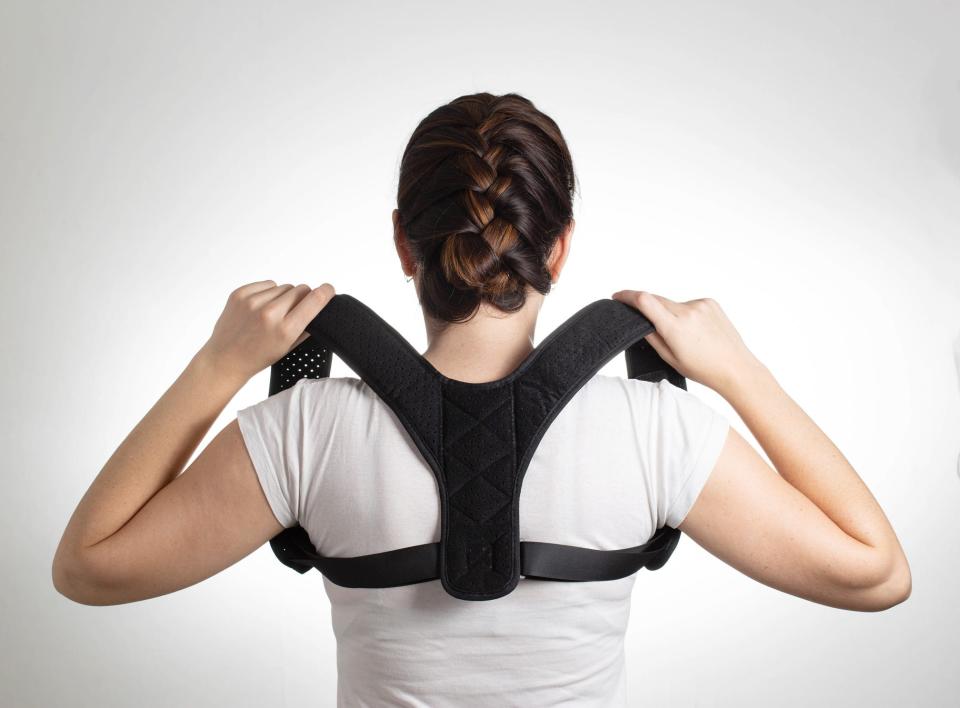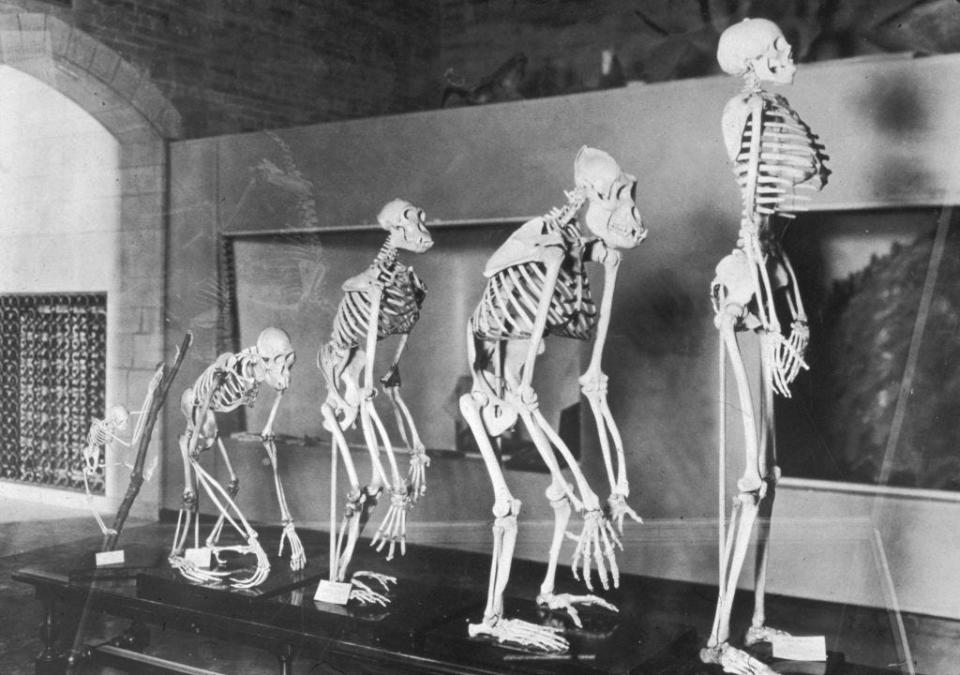Your back and neck pain might have nothing to do with your bad posture, a posture historian says
In the US, the message is clear: sitting up straight is good, and slouching is bad.
But Beth Linker, author of "Slouch: Posture Panic in Modern America", says it's more complicated than that.
In her new book, she unpacks the history of Americans' obsession with "good" posture and questions its scientific merit.
Odds are, you can probably remember the last time you were told to sit up straight. Maybe it came from a parent, a teacher, or a fitness instructor. Or perhaps it was suggested by an ad for posture-correcting devices like special sports bras or wearable sensors.
The message that slouching is bad is everywhere in our society. In fact, it's woven into the very fabric of American history, as Beth Linker, a science historian and former physical therapist points out in her new book "Slouch: Posture Panic in Modern America."
"Slouch" takes readers on a journey through that history, and exposes the role that culture has played in shaping our collective obsession with sitting up straight — not to mention a $1.25 billion global industry built on posture-enhancing products and fitness programs, Linker reported.

That's not to say that there aren't any benefits to practicing good posture. Experts previously told Business Insider that bad posture can cause neck and back pain, wear and tear on joints and discs, decreased flexibility, and other health issues.
In her book, Linker makes no claim about how debilitating poor posture can be. But she does raise questions about the scientific merit of these claims. From her perspective, practicing good posture probably isn't as important as we've been taught to believe it is.
"I don't walk around with a drill sergeant in my head," she said. "I don't think it's going to help the pain that I'm experiencing or the pain I'll have in the future, because it's so much more complex than that."
The posture panic

Americans' fixation with posture dates back to the early 1900s. The very first study on the "poor posture epidemic," as Linker calls it, was published by Harvard University in 1917.
The study found that 80% of students had bad posture and those who slouched the most exhibited a "greater variety and higher percentage of sickness," than those who slouched less, the Harvard Crimson reported.
But the earliest musings about posture date back even further. "Since the time of Plato, naturalists, theologians, and philosophers in the West have remarked on the uniqueness of human posture and bipedalism," she wrote.
These thinkers saw uprightness as a crucial aspect of human nature that sets people apart from animals. Later on, 20th-century medicine labeled poor posture a disease. And culturally, slouching became entangled with racist, classist, and ableist ideologies, Linker argued in her book.
Meanwhile, the science suggesting that posture plays a role in our health — a key argument used to back its importance — is lacking.
A lack of evidence

Despite the general assumption that bad posture leads to a bad back, there's limited science to back that up.
"There have been a few studies that indicate that there isn't solid scientific evidence to show that a person who slouches more is more likely to have back pain," Linker told BI. For example, research has shown that there's little evidence to support that slouching in adolescents is associated with back pain, or predictive of future back pain.
While it's easy to blame bad posture for back pain and other spinal health issues, Linker said that it's actually more complicated.
"After being trained as a physical therapist, it doesn't really add up," she said. There are a myriad of things that impact a person's spinal health, such as diseases like arthritis, amount of exercise, aging, and even psychological conditions like depression and anxiety, according to the Mayo Clinic.
Plus, walking around with a "drill sergeant" in your head constantly reminding you to sit or stand up straight can cause more problems than it solves, Linker said, adding that in general, maintaining the same position for too long, even if your spine is properly aligned, can lead to pain.
So, "fixing" your posture isn't necessarily guaranteed to cure your back pain. When searching for the right solution, talking to a doctor, physical therapist, or bodywork professional is a great place to start, Linker said. They can help you identify the cause of your pain, and work towards a healthier spine.
She also recommends incorporating movement into your daily routine, especially if you work a desk job. And when it comes to posture-correcting products, be skeptical of their promises, she said. Some can be expensive, and they may not target your specific needs, she said.
Read the original article on Business Insider


